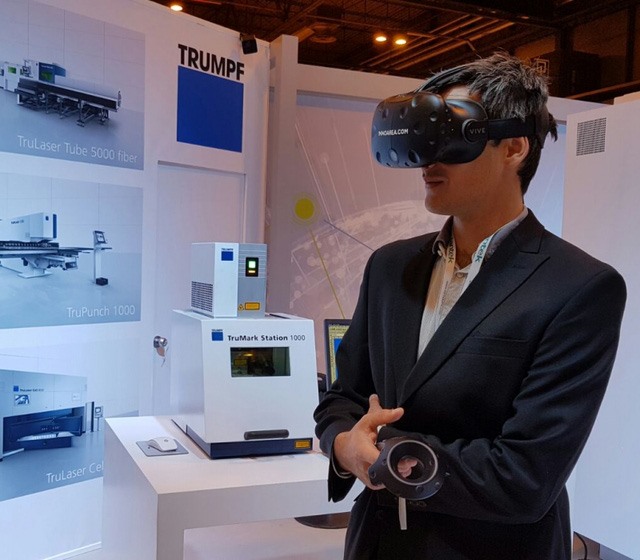 Economy
Economy

The expectation of German businesses in Việt Nam is quite satisfactory, according to annual AHK World Business Outlook made by the German Chambers of Commerce Abroad announced on Tuesday.
 |
| A corner of TRUMPF Việt Nam Company Ltd, a German business in HCM City. The company provides businesses with local sales, spare parts and service. — Photo baodautu.vn |
HCM CITY — German business expectations remained largely positive in Việt Nam, according to the annual AHK World Business Outlook report compiled by the German Chambers of Commerce Abroad.
The survey into German business insights in Việt Nam and around the world on current future economic development covered more than 3,500 German businesses worldwide to assess their insights about the development of local markets, their businesses and expectations.
According to the results, 54 per cent German businesses expected to continue expanding their investment in Việt Nam in the next 12 months, while 52 per cent wanted to recruit more staff.
Marko Walde, chief representative of German’s Chamber of Commerce in Việt Nam, said Việt Nam’s economy had been growing continuously, in addition to the conclusion of negotiations with the EU on the Europe-Việt Nam Free Trade Agreement (EVFTA). Both had created momentum for Việt Nam’s economic development.
The signing of the EVFTA would be a positive sign for free trade based on international rules and principles.
Việt Nam is an important partner of Europe and Germany in ASEAN. Due to US-China trade tensions, businesses are also moving production to neighbouring countries of China, including Việt Nam, to avoid tax increases being applied in the dispute.
However, the legal framework for investment and business as well as the lack of high quality human resources remained major challenges for German investors in Việt Nam.
The survey also showed that economic growth in Asia-Pacific was quite good, but the region’s development would slow due to US interest rate hikes and US-China trade tensions. — VNS




